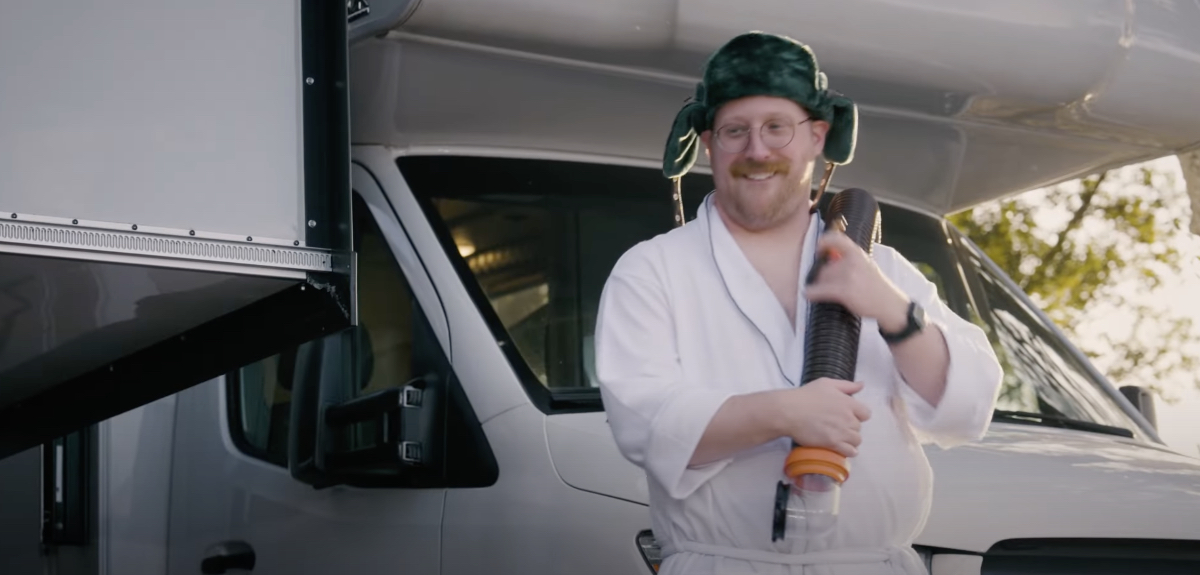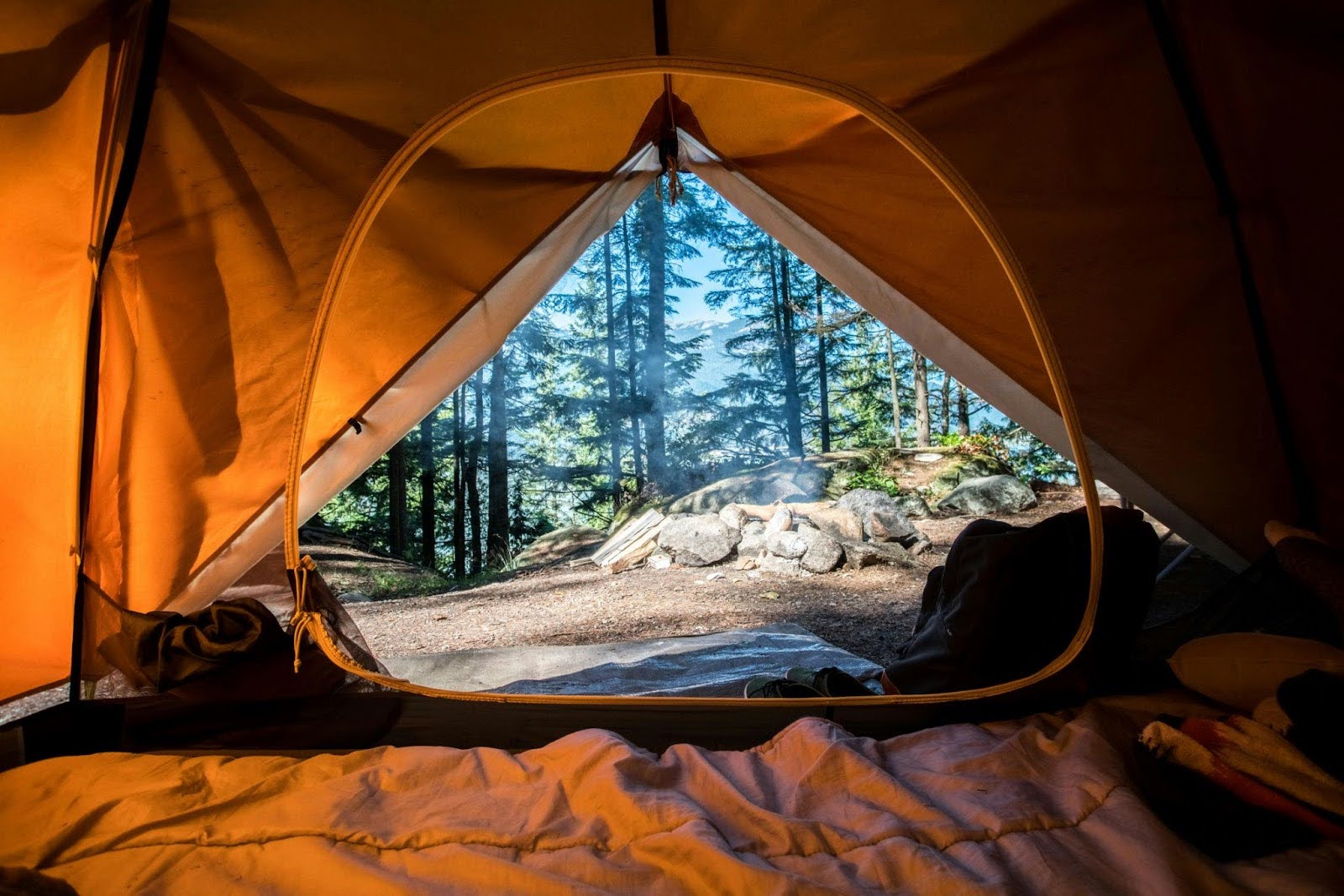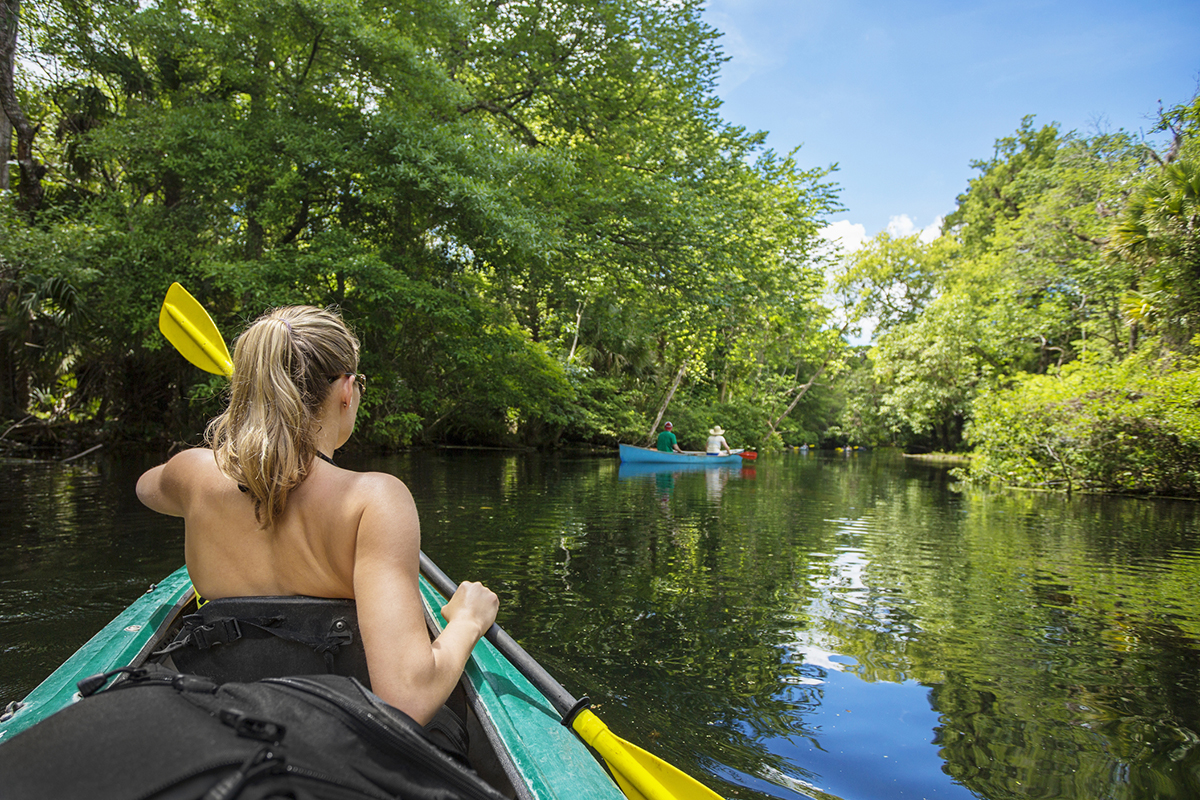Volunteering on The Road
Image Caption:
“What a rich aspect it brings to your travels,” says Linda Schmidt of Bellevue, Washington, describing the nearly 20-year experience she and her husband, Carl, have enjoyed as members of RV Care-A-Vanners, a group of RV owners who travel the country and support home builds with Habitat for Humanity.
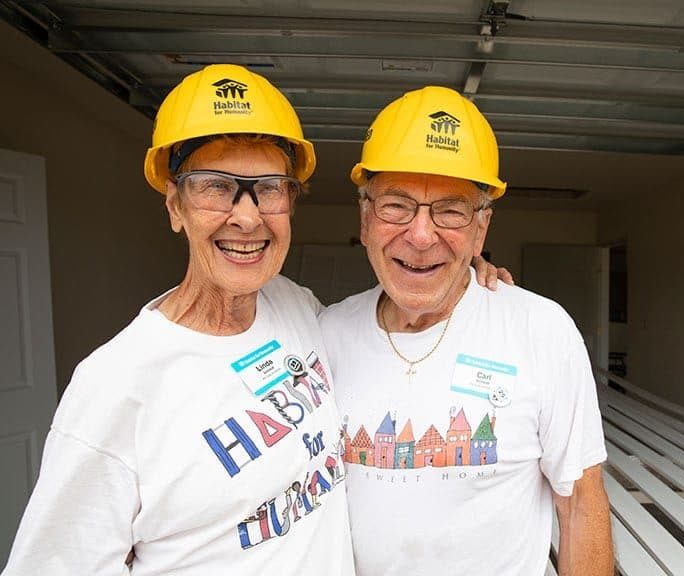
Volunteers Linda and Carl Schmidt during the RV Care-A-Vanners’ 30th Anniversary build in 2019. Photos: Jason Asteros and Rick Huls, Habitat for Humanity International
She ticks off the benefits, starting with opportunities to volunteer throughout North America and the positive, warm experience of getting to know people in those communities, particularly the new homeowners. Making friends among fellow RVers is another perk.
What is RV Care-A-Vanners?
The RV Care-A-Vanners program was formed in 1989 as a group of RV owners who travel — at their own expense — to support building programs primarily for small- and medium-size Habitat for Humanity organizations in rural areas, as well as those affected by disasters. In fiscal year 2018, more than 2,000 RV Care-A-Vanners completed 249 builds for 106 local Habitats. The number of builds was up more than 10 percent from the previous year.
The Schmidts were new to RV camping in 2001. After reading a newspaper article that described an upcoming Habitat build in Las Cruces, New Mexico, they signed up with RV Care-A-Vanners. Since then, they have participated in more than 31 builds in Alaska, California, Florida, Louisiana, Mississippi, Montana, New Mexico, New York, North Carolina, Oregon, Texas, Washington and Canada’s Prince Edward Island.
“It’s the friendship on the road that caught me back then and catches me now,” Schmidt says.
TEAM BUILDING
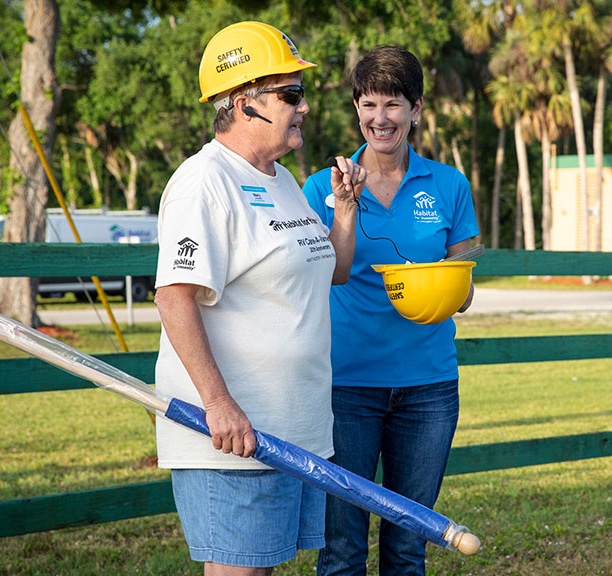
RV Care-A-Vanners Program Manager Mary Vandeveld addressed volunteers at the opening ceremony of the 30th anniversary event.
Mary Vandeveld, a retired doctor from Gladstone, Michigan, and her husband, Dave, joined RV Care-A-Vanners in 2000. Mary has managed the program since 2012, and Dave handles survey coordination and sends out all the build surveys. “Something happens, and you’re hooked,” Vandeveld says. “It’s so rewarding, and it’s something you can do together as a couple.
It could be the “lovely moments” Linda Schmidt describes: a father crying “happy tears” as he works because he knows there won’t be rats in the kitchen cupboards of his future home, or the children happily yelling “My bedroom!” when they see it for the first time.
While some RV Care-A-Vanners have building experience — like Carl Schmidt, who taught high school shop classes — others don’t, but all are welcomed with open arms and given the opportunity to learn new skills.
“When I started building in 2001, I didn’t know anything about it,” Vandeveld says. Now, as a jobsite house leader, she directs a large group of volunteers through all phases of construction. Crew leaders manage smaller groups of volunteers and report to the house leader.
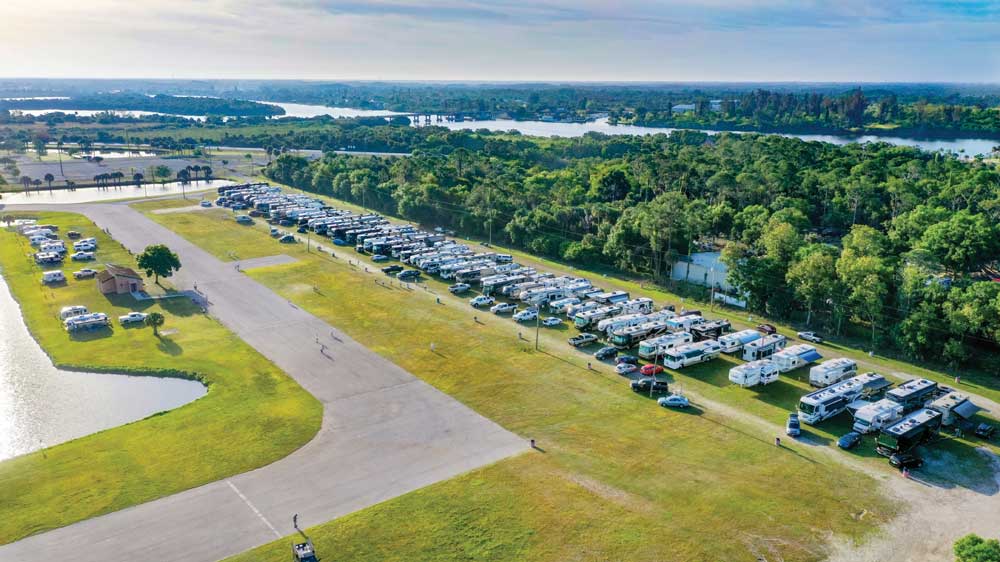
Hammering Away: To celebrate RV Care-A-Vanners’ 30th anniversary last April, the group held a one-week build and rally in Fort Myers, Florida, with the Habitat for Humanity of Lee and Hendry County organization. More than 215 RV Care-A-Vanners volunteers worked on 23 different projects, completing more than 7,000 hours of service.
OPEN HEARTS
Former schoolteacher Jan Cantrell and her husband, Jack, of Savannah, Georgia, joined RV Care-A-Vanners 18 months ago, and they’re already on their ninth build.
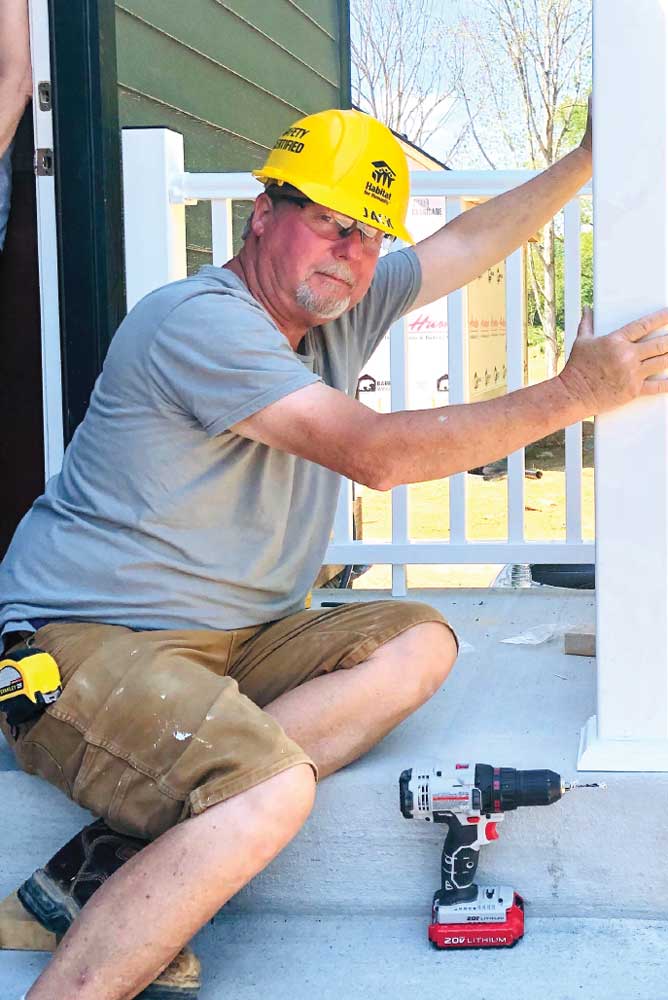
A former shop teacher, Jack Cantrell puts his skills to good use, but no experience is required to join the RV Care-A-Vanners crew.
“Our first build was in Tennessee, and we got to meet and work side by side with the future homeowner and his daughter,” Jan Cantrell says.
“It was just inspiring, and we immediately signed up for another one, and here we are. “One thing that appeals to us is that most of the houses Jack and I have been involved in have been for young families,” she says. “As a teacher, I know how important stability is to going to school. It’s grabbed my heart because I know we’re impacting communities. We’re helping families and communities start a new life.”
To be eligible for a Habitat home, applicants must demonstrate a need for safe, decent housing, pay an affordable mortgage, participate in financial-education classes and log a certain number of sweat-equity hours, which typically includes time spent helping build their own home or the homes of others.
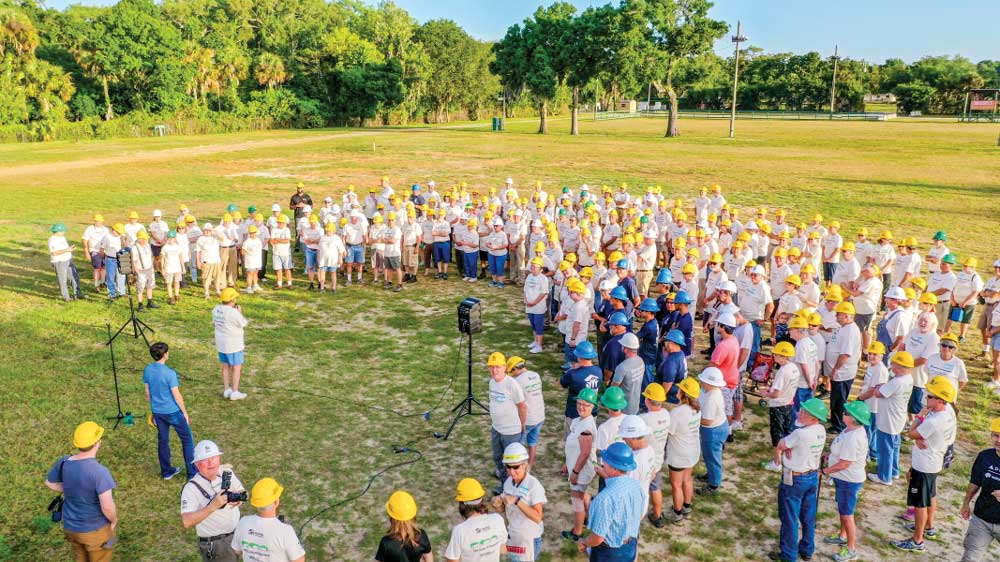
Retired doctor Mary Vandeveld welcomes volunteers at the group’s 30th anniversary gathering last April.
“We’re taking the labor cost out of the house. As volunteers, that’s what we’re contributing, and that’s how it becomes economical to build these houses,” Cantrell says. “We take for granted owning a home. For them, it’s just a dream, and here they are, realizing the dream.”
The Cantrells travel about four months at a time, visiting friends and family, sightseeing and working on Habitat builds. Currently, the couple has builds scheduled through October this year in multiple states.

HOME ECONOMICS
Eighteen volunteers manage the RV Care-A-Vanners program, and it is the only Habitat group run strictly by volunteers. It is self-supporting, with members making donations to fund the administrative cost of operations. In 2018 the Winnebago Foundation became the program’s lead supporter, providing funding for its 30th Anniversary Build and Rally, disaster deployments and other initiatives.
In addition to supplying dedicated volunteer builders, RV Care-A-Vanners can provide local Habitat organizations with skilled house leaders and crew leaders who assist the affiliate staff in managing teams of unskilled volunteers, so all volunteers have a meaningful and safe experience.
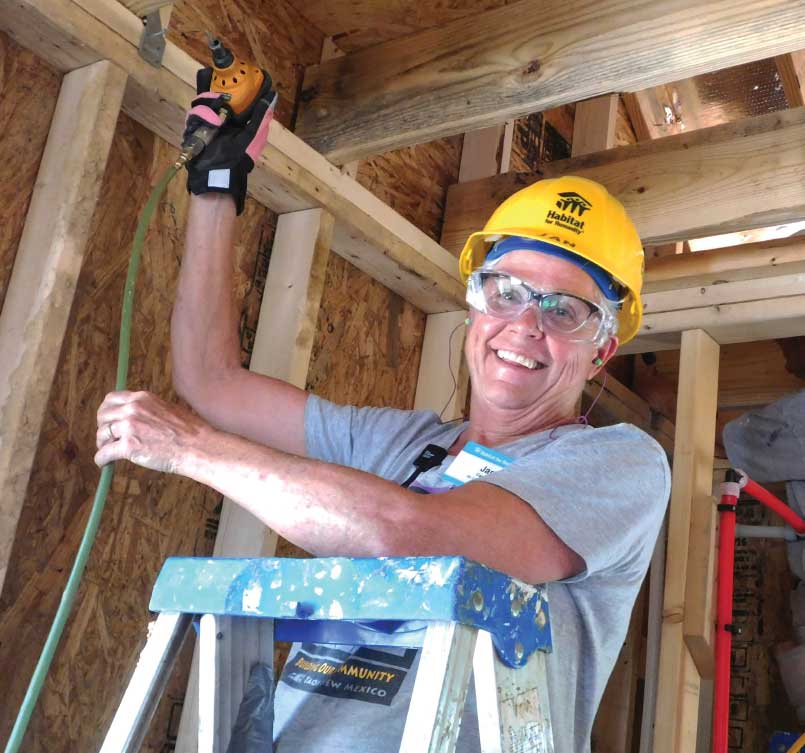
Former schoolteacher Jan Cantrell helps a family realize its dream of homeownership.
The program has 21 certified Master Safety Trainers who teach the Competent Person Safety Training course to local Habitat staff and volunteers. It also has 98 Disaster Rebuild Team members, trained in partnership with Habitat for Humanity International’s Disaster Risk Reduction and Response department. These skilled volunteers deploy to disaster-affected areas during the rebuilding phase, increasing the building and repair capacity of local Habitat organizations.
“We surprise people with what we can do with our knowledge and our skills,” Vandeveld says. Currently, the RV Care-A-Vanners cannot keep up with requests received from local Habitat organizations, even with more than about 2,000 active volunteers.
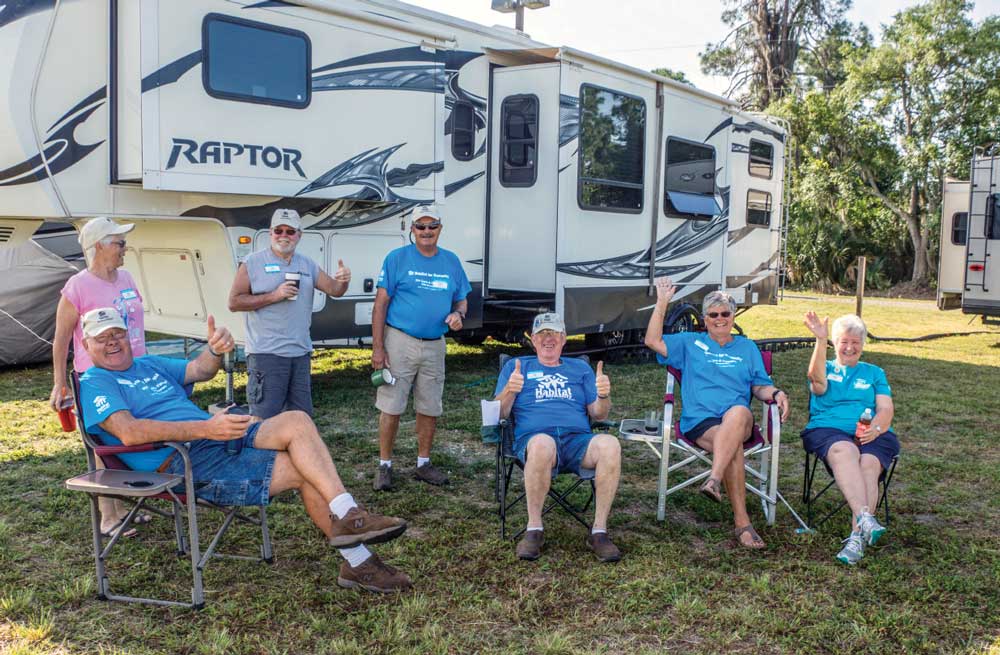
Because many locations do not have access to bathrooms, volunteers must have a self-contained RV.
Joining RV Care-A-Vanners is as easy as 1, 2, 3:
1) Go to the RV Care-A-Vanners website, review the list of upcoming builds and sign up for one. Details are provided for each build, including schedule, type of work, RV parking location and fees, hookups, spaces available, maximum rig size, miles to the jobsite and team leaders.
2) Sign the waiver and complete the background check that will be emailed to you.
3) Expect a call from Ty Jones, who will walk you through what to expect on your first build. Don’t be surprised if it takes her several weeks to contact you. RV Care-A-Vanners is currently adding about 60 new volunteers each month.
A typical build lasts from two to three weeks, and you’ll work from 8 a.m. to 2 or 3 p.m., Monday through Friday, with two breaks and lunch. Sometimes the community will bring lunch to the jobsite, or you may be asked to pack a bag lunch. Safety gear will be provided.
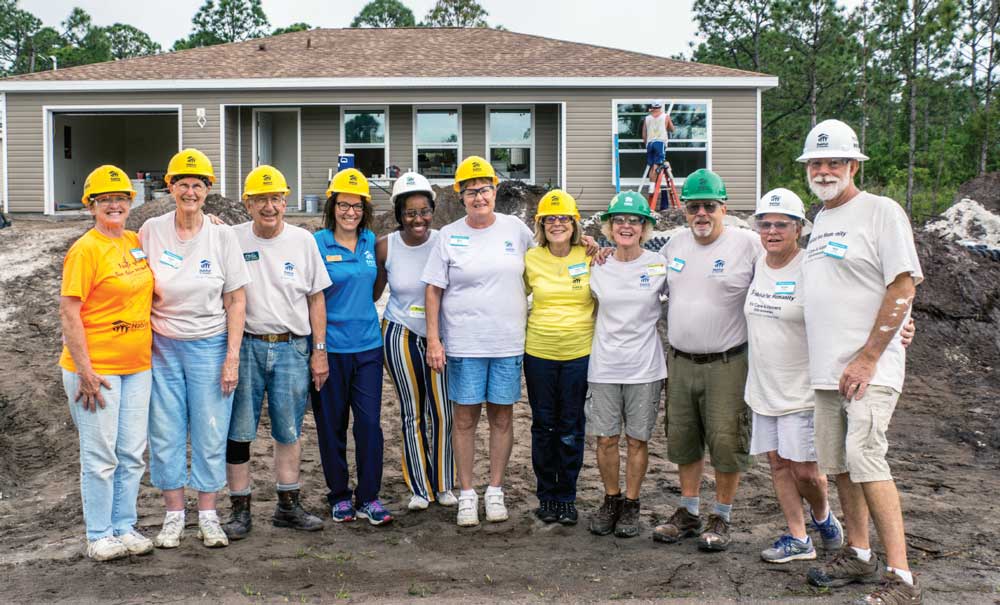
Mary Vandeveld (center) and fellow RV Care-A-Vanners wrap things up at a Florida build site.


